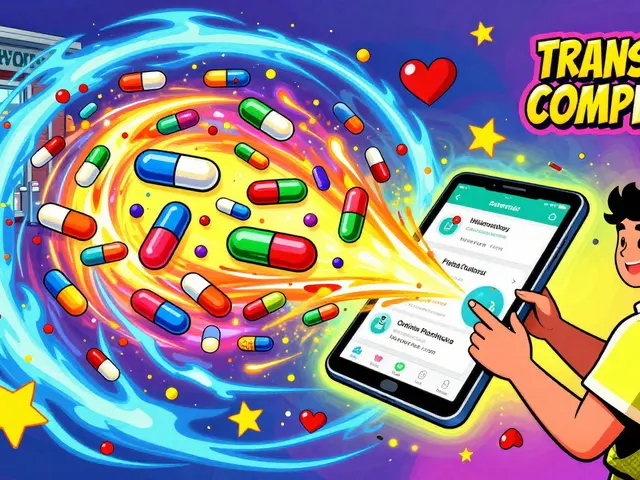Patient Support: Guides for Managing Medications, Side Effects, and Daily Health
When you're on long-term medication, patient support, the system of resources and guidance that helps people safely use medications and manage chronic conditions. Also known as health navigation, it's not just about pills—it's about understanding how those pills fit into your life, what to watch for, and how to ask the right questions. Too many people take meds without knowing why they’re prescribed, what they interact with, or how side effects might change their daily routine. That’s where real patient support comes in: clear, no-fluff advice that helps you stay in control.
Good patient support doesn’t wait for a crisis. It starts with knowing your drugs. For example, if you’re on Therapeutic Use Exemption, a special permission allowing athletes to use otherwise banned medications for legitimate medical reasons. Also known as TUE, it’s a lifeline for athletes with asthma, ADHD, or hormone imbalances, you need to know how to apply, what docs to involve, and how to avoid accidental violations. Or if you’re taking Didanosine, an older HIV drug that has dangerous interactions with common painkillers and supplements. Also known as ddI, it’s one of those meds where a simple antacid can ruin your treatment, you need a checklist—not just a prescription. Patient support means having the facts before you walk into the pharmacy.
It’s also about what you do outside the clinic. Yoga for asthma isn’t just a wellness trend—it’s a proven way to reduce reliance on inhalers. Folate deficiency doesn’t just cause fatigue—it throws off your hormones, making everything from sleep to mood harder to manage. Even something as simple as acid indigestion while traveling can be prevented with smart packing and timing. These aren’t side notes. They’re core parts of patient support. When you know how your meds work with your body, your diet, your stress, and your routine, you stop being a passive patient and start being an active manager of your health.
Below, you’ll find real-world guides that cut through the noise. No marketing. No fluff. Just direct comparisons of meds like Bactrim vs. alternatives, Claritin vs. Zyrtec, or Allopurinol vs. febuxostat. You’ll see dosage tips for carbimazole, safety steps for domperidone in pets, and how to buy generic Cialis without getting scammed. These aren’t theoretical. They’re written for people who are already on these drugs—and need to know what to do next.
Daclatasvir and Hepatitis C: Finding Support Groups for Patients
Find real support while taking daclatasvir for hepatitis C. Learn where to join free, trusted groups, what to expect, and how to connect with others who truly understand.





